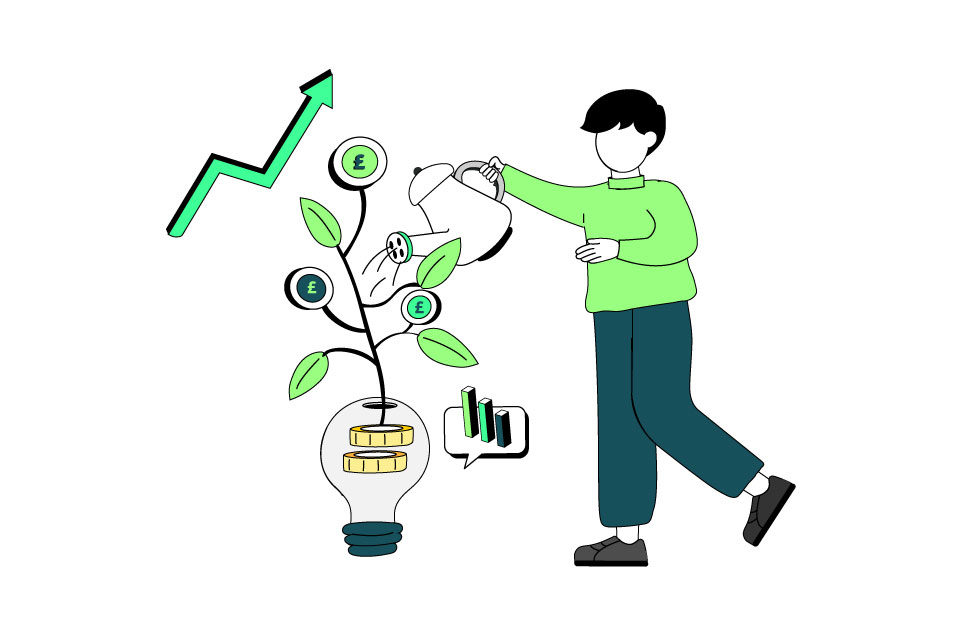
As we approach the new year, following the rush of the holiday season, it’s an ideal moment to reflect on the challenges and opportunities ahead.
In 2024, a new government took office with an ambitious agenda for change. However, the UK economy’s all too familiar issues of low growth, low productivity, and weak business investment have persisted, and now faces an outlook of heightened global instability, with ongoing conflicts and the prospect of tariffs and trade wars reshaping the global economy in 2025.
While there are no simple solutions to achieving sustainable growth, let’s take a look at the key issues – highlighted in our Trends & Predictions 2025 report – that businesses will need to consider in the coming year to thrive in these challenging times.
Employee skills and engagement will be key to productivity
We continue to see skill shortages act as a drag on productivity, with UK businesses investing less in employee training compared to other advanced economies. At the same time, the workplace has transformed over recent years, with a greater emphasis than ever before on mental health, diversity, and hybrid working models.
This means it’s more important than ever that leaders foster trust, fairness, and a supportive culture. This includes increased investment in training to upskill and empower employees, which will lead to increased job satisfaction and productivity, reduce churn, and feed through to better customer outcomes.
Changing consumer behaviours: a complex picture with some consistent trends
Consumer preferences are increasingly influenced by digital confidence and ethical standards. In particular, expectations for personalised, high-quality digital experiences are rising, with customers demanding genuine solutions tailored to their needs.
However, the trend doesn’t all go in one direction, with businesses needing to navigate an increasingly polarised customer base – balancing the needs of more financially secure, digitally-savvy customers with those who are more vulnerable. A deep understanding of customer journeys, supported by the right combination of technology and human empathy, will be critical to successfully navigating this new landscape.
Customers are more informed than ever, with access to a plethora of sources and perspectives – from online reviews and influencer recommendations to perceptions of a business’ ethical practices. Our research shows that 45% of customers say that whether or not an organisation does the right thing – in its business practices or its impact on society – influences their satisfaction.
In particular, climate change will increasingly shape consumer behaviour. Customers, regulators, and investors will expect businesses to address environmental issues proactively. In meeting this challenge, the best-performing organisations will also focus on innovations which deliver productivity improvements that unlock both greater sustainability and better customer outcomes.
Deployment of artificial intelligence in customer service will improve, but with a risk that service becomes dehumanised
As we go forward, the deployment of AI in customer service will expand, with organisations leveraging it in direct interactions, workflows, predictive analytics, and customer feedback analysis. However, over-reliance on technology risks dehumanising interactions, by disempowering service staff and offering fewer options for consumers to speak to a real person. This approach allows for fewer opportunities to forge an emotional connection with customers and increases the risk of failing vulnerable customers.
Therefore, we predict that while overall satisfaction will rise, improvements may be incremental and inconsistent. The divide between top-performing organisations and others will grow, as the best blend of AI with human empathy, using technology as a support tool rather than a replacement.
Regulators will be under growing scrutiny
In recent years, regulators and organisations have increasingly acknowledged that organisational culture is the most critical factor driving long-term customer service performance. To meet the demands of fast-evolving markets, regulators must broaden their expertise in customer experience, including what the implications of artificial intelligence are for their sector, where necessary redefining what customer service means within their industries.
Looking ahead
The road to sustainable growth remains uncertain in 2025, but businesses that embrace innovation, invest in people, and foster meaningful connections with customers and stakeholders will be well-positioned to thrive.
Consistently high levels of customer satisfaction are integral to sustainable business success, as our research has consistently demonstrated. By addressing the above issues strategically and focusing on the ROI of good service, organisations can build resilience and achieve long-term success in an increasingly complex world.


